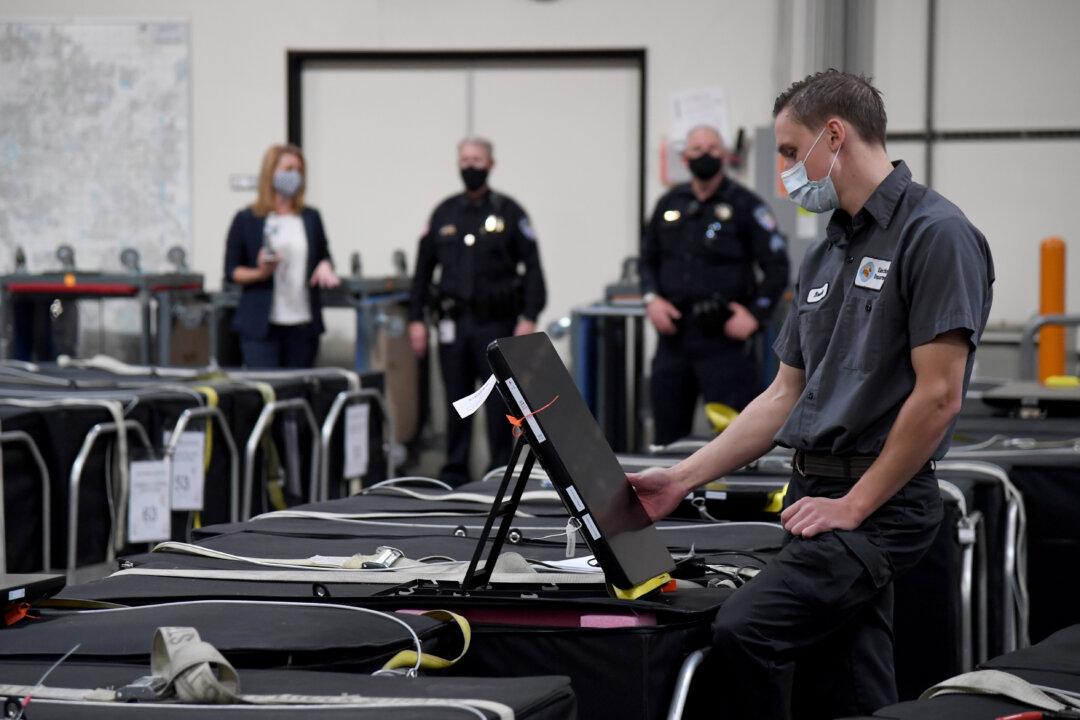A man who’s made a living developing fraud detection algorithms has discovered a curious phenomenon: Counties that started using Dominion Voting Systems machines have on average moved by 2 to 3 points to the Democrat presidential candidate from the Republican compared to counties that didn’t adopt the machines.
The difference persisted even after he controlled for a number of factors, including county population and various demographic characteristics.





